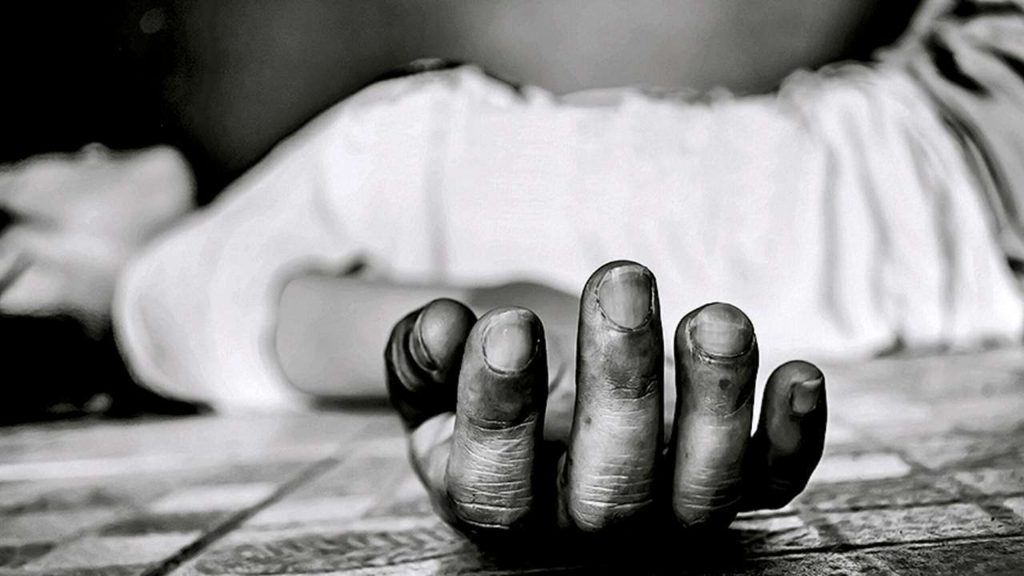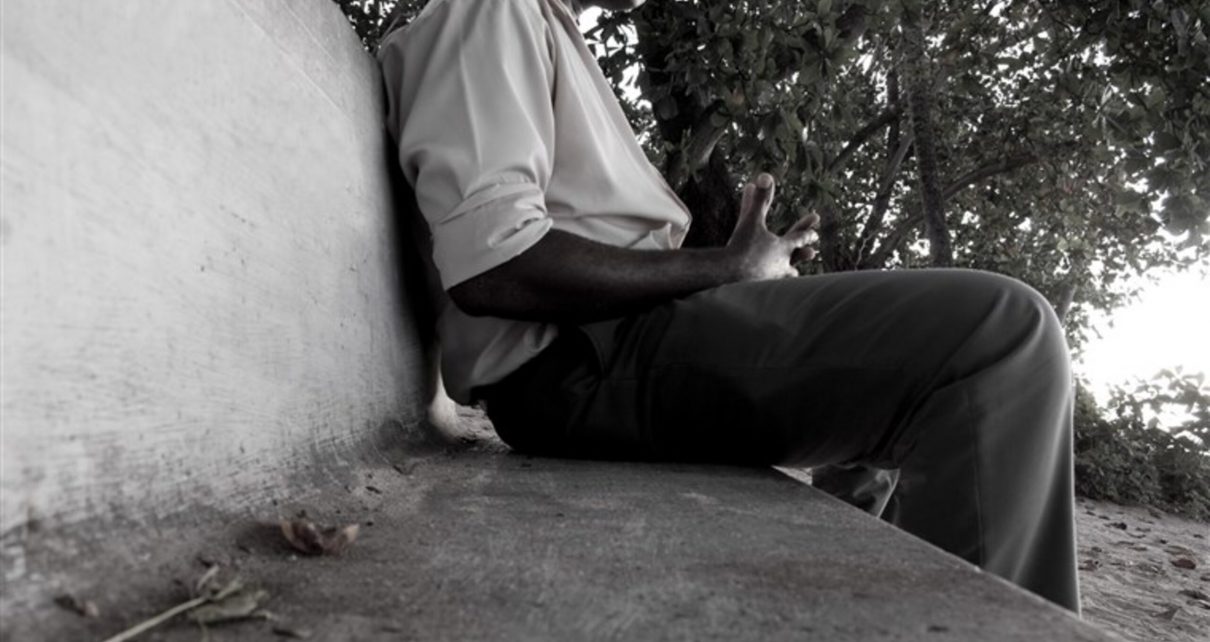
“I’ve battled with depression for seven years, and now that battle is over. I couldn’t continue to live the way I did, and make the same bad choices all over again. The noise got too loud, but now the noise can stop.
“I didn’t send my mum a note because I couldn’t bear to. If you’re reading this, then you probably know how much she meant to me. The thought of her would have discouraged me. I couldn’t let it. Not for the fourth time. Take care of her for me.
Like I’ve always said, ‘Life is like a party. When you stop having fun, leave’. So, it had to be today, a week after my birthday. Please pray for my soul. Pray that I finally find rest and peace. It’s all I ever wanted…”
That was the suicide note posted on Instagram by Ayodele Bandele, a young, China-trained digital strategist, who was declared missing in Lagos last week and later found dead. Family and friends had made frantic efforts to find him after seeing his car parked on the Third Mainland Bridge in Lagos. An appeal on Twitter read: “He has been unreachable since yesterday. It is important that he is found as soon as possible”. But he was found too late.

Depression is real. It is more widespread than we bother to acknowledge. And it is leading to suicide among the young, quietly decimating the ranks of the leaders of tomorrow while the society carries on as if nothing was amiss. Politics and Covid-19 are blinding us to this other scourge. How can a society come to terms with the wilful demise of a young person? How does dusk embrace dawn before noon? And we look on as if that is normal? It’s about time we confront this silent killer.
Nigeria’s suicide rate places it at 15th in the world. The seven countries with the highest suicide rates in Africa are: 1. Lesotho; 2. Cote d’Ivoire; 3. Equatorial Guinea; 4. Cameroon; 5. Uganda; 6. Zimbabwe; 7. Nigeria. On the other side of the equation, the seven countries with the lowest suicide rates in Africa are — 1. Morocco; 2. Sao Tome and Principe; 3. Tunisia; 4. Algeria; 5. Egypt; 6. Libya; 7. Kenya.
The World Health Organisation (WHO) notes that across the world one person takes their life every 40 seconds. In a report titled, “Suicide in the World: Global Health Estimates”, WHO reveals that hanging, pesticide self-poisoning and shooting were the three commonest methods by which people commit suicide. About 800,000 people take their lives every year, worldwide. For Nigeria, 17,710 cases of suicide were recorded in 2016 at all ages, out of which 8,410 (47%) were females while 9,300 (53%) were males.
In 2019, the spate of suicides in Nigeria within an eight-week period sent shock waves round the country. The Lagos-based Vanguardnewspaper investigated the upsurge:
“On the morning of the April 6, 2019, the country was greeted with the suicide case of a lecturer at the Department of Mathematics, in the University of Ibadan. It was reported that the deceased ended his life after unfulfilled dreams of completing his PhD programme. The following week on April 19, 2019, a 100-level student of Kogi State University, Ayingba, also died by suicide after she was reportedly jilted by her boyfriend. She was said to have taken Sniper, a pesticide… Several days later on 29th April, news broke that another undergraduate, a 100-level student of Chemical Engineering at the University of Port Harcourt, Rivers State, ended his life after drinking two bottles of Sniper. Shortly thereafter, an 18-year-old was found dead in her room in Aluu, one of the host communities of UNIPORT with bottles of insecticide and Snipper by her side.
“On the May 4, 2019, a 26-year-old hairdresser in Lagos ended her life after her boyfriend of two years ditched her. A week ago, (May 13th, 2019) another student of the University of Nigeria, Nsukka, also attempted suicide. Another baffling case of suicide occurred on May 14th, 2019, involving one member of a Pentecostal Church in Lagos, who reportedly got depressed over his accommodation issues before taking his own life. On the May 15, 2019, a 17-year-old in Jos, was reported to have drunk Sniper to end his life when he learned that he had failed the 2019 JAMB exam. A day after on May 16th, it was also reported that a third year Physics/Astronomy undergraduate of the University of Nigeria, Nsukka, was found dead in an uncompleted building in the educational institution. His lifeless body was found dangling on a rope…”
Unfortunately, as noted by those who have deep insights into the subject, suicide doesn’t end the chances of life getting worse, it eliminates the possibility of it ever getting any better. Antonin Artaud gives us an insight into the mind of the depressed: “If I commit suicide, it will not be to destroy myself but to put myself back together again. Suicide will be for me only one means of violently reconquering myself, of brutally invading my being, of anticipating the unpredictable approaches of God….”
Psychologist Susan Sterling examines how suicide is not just a loss of a family member but a wrench that gnaws at the inner core of close relatives: “Feelings of anger and guilt and abandonment invade them, as if love should or could have prevented what happened. Survivors relive, over and over, the last days and months, even years, before the suicide, seeing now the signs that were missed, which they believe they should have recognised”.
A depressed person may be begging for help from those around him without their being aware of his plea. The person may become withdrawn or increasingly less sociable. His sleeping or eating habits may change. He may have difficulty concentrating or in making decisions. He may forget obligations. He may become preoccupied with morbid thoughts, comments and literature. He may become rebellious or nurse excessive feelings of guilt. He may feel hopeless and lethargic. He may be drowning in a bottomless ocean of despondency but exuding the outlook of a normal person. Those who have been there and back have incredibly frightening tales to tell.
Psychotherapist Andrea Wachter, a Licensed Marriage and Family Therapist, counsels those battling with depression to seek help. She recommends that the depressed need to consider seven ‘truths’ as they soldier on:
Don’t believe everything you think.
But the main cause of depression is not usually our life circumstances. It is our thinking. Unfortunately, when we are depressed, we tend to believe our thoughts. And the mind of a depressed person is not usually the best place to hang out.
Do the opposite of what the “voice of depression” suggests.
I had to learn that when I was depressed and thought I should isolate, I should do exactly the opposite and reach out to a friend or attend a support group.
Don’t open virus-infested links.
We do have a choice about whether or not to open those “virus-infested links” containing the same old self-sabotaging thoughts…
Upgrade your mantras.
Our minds are mantra machines, and whether our messages are kind, neutral, unkind or abusive, they make an enormous difference in the quality of our lives… My upgraded mantras sound more along the lines of this: I can handle what happens.
You are not alone.
It’s important to find people who really understand and can handle your pain and your dark thoughts, people you feel totally safe with. It’s so important to seek out loving, compassionate, non-judgmental people until you can be that way toward yourself.
Something needs to die, but not you!
Self-hate might need to die. The belief that you can’t handle life might need to die. The thought that you are alone and that nobody cares might need to die. But not you.
One chapter is not the whole book.
Life takes different twists and turns, and we don’t get to know what the next chapter in our life will bring if we give up on ourselves.
Experts cite the extinction of the traditional family structure, the desperation to achieve success at all costs, lack of job security, shortage of psychiatrists and non-passage of the Mental Health Bill, among other factors as cogs in the wheel of the fight against depression and eventual suicide in Nigeria. No agony is greater than watching parents burying their adult children. “Suicide is man’s way of telling God, ‘You can’t fire me – I quit!”, says Bill Maher. What is worse, this insane trend is unAfrican.
Whatever your station in life, please do your bit to reverse this trend where parents bury their own children! Give them a hand to hold!


